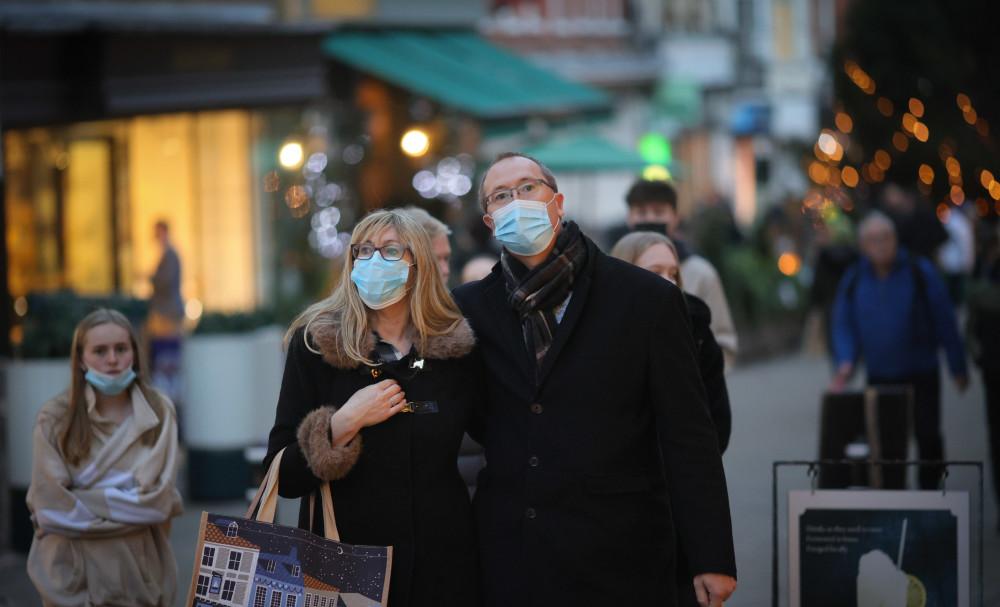
People walk shopping on the high streets of Winchester, south of England, on Dec. 22. Xinhua News Agency (Photo by Tim Ireland)
London, December 23 (Xinhua) -- The latest research report on the new crown virus released by the British Health Security Agency on the 23rd said that compared with the Delta strain, the Omilton strain spreads faster, but the risk of hospitalization of confirmed cases is lower; there is evidence that the protective effect of symptomatic infection of the Omilton strain after vaccination is strengthened.
The British Health Security Agency updated the risk of hospitalization caused by the Ami kerong strain on the 23rd and the analysis report on the protectiveness of the vaccine against the strain. The data showed that people infected with the Omikejon strain were much less likely to develop severe symptoms than those infected with the Delta strain. Initial analysis showed that people infected with the Olmikharon strain were 31 to 45 percent less likely to go to the emergency department and 50 to 70 percent less likely to be hospitalized than Delta strains.
According to the data released by the British Health Security Agency on the same day, there were 16,817 new cases of Infection with the Aomi Kerong strain in the country, with a cumulative total of 90,906 confirmed cases. The agency noted that the Omilkejon strain spreads faster than the Delta strain, and the number of people infected with the Omilkeron strain among covid-19 patients in the country has increased dramatically. In addition, at least 9.5% of people infected with the Omiljun strain have previously been infected with the new crown virus.
The agency's analysis also showed that the protective efficacy of the two doses of the vaccine against symptomatic infection with the Omiljung strain was reduced, but improved after vaccination with a booster needle. However, the protective effect of the booster needle will rapidly weaken after a period of time. The latest data show that efficacy in preventing symptomatic infections declines by 15 to 25 percent after 10 weeks of vaccination, but the agency believes that the intensification of the effect on the prevention of severe diseases is likely to last a long time.
However, the HEALTH Security Agency said the analysis was "preliminary and highly uncertain" and further analysis was needed in the coming weeks. At present, the number of cases of Omiljun strain infection is relatively small in people over 60 years old, and the results of the study are mainly based on people under 40 years of age, and this group currently has the highest infection rate of Omiljun strain.
The agency's chief executive, Jenny Harris, said the latest analysis showed an encouraging early signal, however this is only early data and more research is needed to confirm it.